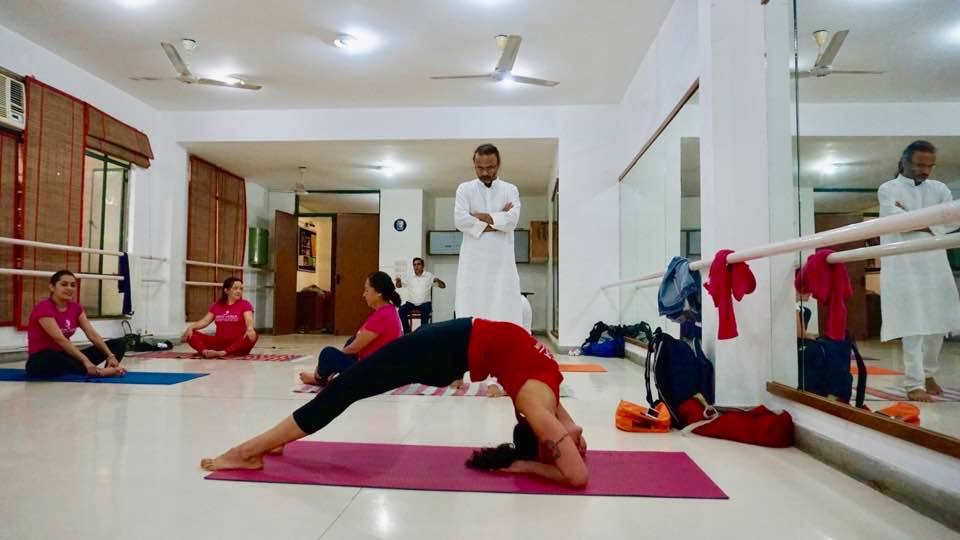
Karmayoga Wisdom:
1 year ago By Yogi AnoopKarmayoga Wisdom: How Adversity Shapes Mental Strength
“Karmayoga and the Profound Science of Concentration: A Dialogue with Yogi Anop”
Student: Guruji, how does one truly develop concentration? I’ve heard it’s essential for success and peace, but it feels so elusive.
Yogi Anoop: Good question. Concentration, or ekagrata, can be cultivated in two primary ways—through adverse circumstances and by taking calculated risks. However, while favorable situations may also offer opportunities for concentration, their success rate is often negligible.
Student: Why is that? Isn’t it easier to focus in comfortable situations?
Yogi Anoop: That’s precisely the issue. Comfort creates a tendency to drift in one particular emotion or thought, making it harder to control the mind. This hinders the complete development of the brain’s mechanisms. On the other hand, adverse conditions and the willingness to take risks force you to enhance your concentration. In such moments, your very existence seems to demand it.
Student: So, challenges can actually help us focus better?
Yogi Anoop: Absolutely. Adversity develops the capacity to manage thoughts naturally. If this process aligns with spiritual practices, a person can transform into a selfless karmayogi. I consider this the holistic development of the mind and brain.
Student: But challenges also bring fear and stress. How do we deal with those?
Yogi Anoop: Fear of defeat, existential crises, and the ability to execute plans—all these naturally evolve in challenging times. You must develop the ability to combat negative thoughts instead of avoiding them. When you analyze deeply, you’ll notice that concentration grows rapidly in such circumstances. The mind, senses, and physical systems work in unison to combat adversity, guiding you toward success.
Student: Could you give me an example to understand this better?
Yogi Anoop: Certainly. Consider a family dealing with a sudden tragedy. In those moments, the mind’s concentration becomes remarkable. Every thought, every action is focused on resolving the crisis. There’s no room for imagination or distractions because the entire system is dedicated to finding a solution.
Student: But crises don’t happen every day. How can one maintain this level of focus in daily life?
Yogi Anoop: True, crises are rare, but challenges—mental, physical, or external—are ever-present. You can use these smaller challenges to develop concentration. Interestingly, many people complain about their lack of focus, asking, “How can I concentrate better?” While this is a valid pursuit, the growth is slower in favorable conditions because the mind easily finds ways to escape.
Student: That makes sense. So, adversity is more effective in teaching focus?
Yogi Anoop: Precisely. In adverse conditions, the mind has fewer avenues to escape. With the support of spiritual practices, one can harness such situations to develop concentration.
Student: Guruji, I’ve often wondered about mortality and fear. For instance, why do wrinkles appear? Or how will death come? These thoughts keep troubling me. What should I do?
Yogi Anoop: You’re not alone. Many students ask similar questions. These inquiries reflect an internal struggle. My role is to guide you through self-management and steer you toward the right path. Admittedly, even I face moments of agitation and frustration. But through self-control, I strive to guide not just my students but also myself.
Student: It sounds like a profound practice of self-awareness.
Yogi Anoop: Indeed. My experience tells me that external management in life mirrors internal management. Facing small problems builds your capacity for self-regulation. Without this, the habit of remaining fixated on one emotion or thought can lead to ruin.
Student: So, you believe adversity has its own importance?
Yogi Anoop: Without a doubt. In adverse circumstances, every step requires careful thought. Decisions must be deliberate. This process leads to heightened concentration and complete development of the brain. The subtle parts of the brain become active, allowing you to make stable and sound decisions.
Student: And favorable conditions?
Yogi Anoop: In contrast, favorable conditions rarely lead to higher development of the senses and mind. The tendency to flow with emotions prevents the development of the ability to restrain thoughts. True growth comes when you’re forced to confront and manage your challenges.
Remember, adversity is not your enemy. With the right mindset and spiritual discipline, it can become your greatest teacher.
Recent Blog
Copyright - by Yogi Anoop Academy
